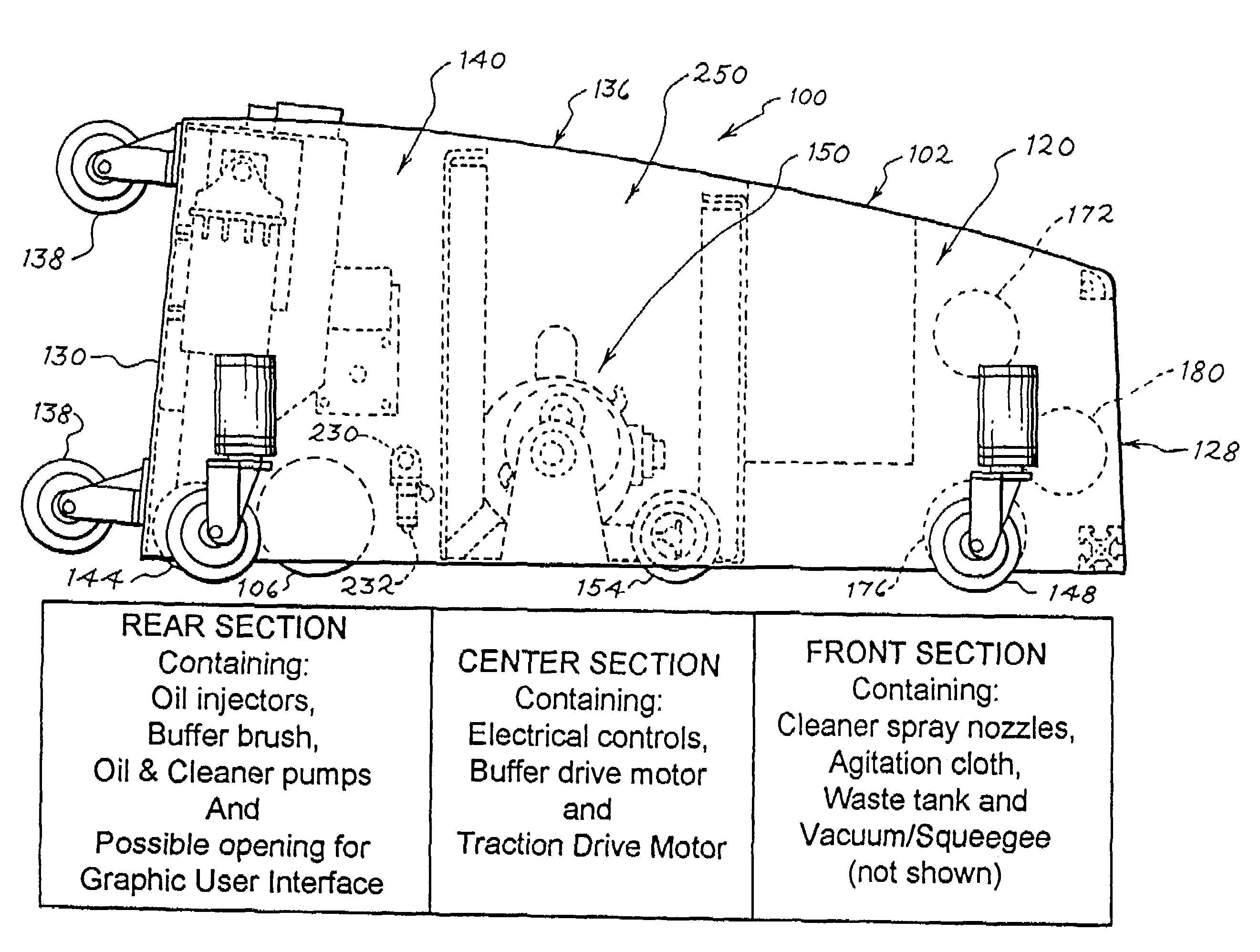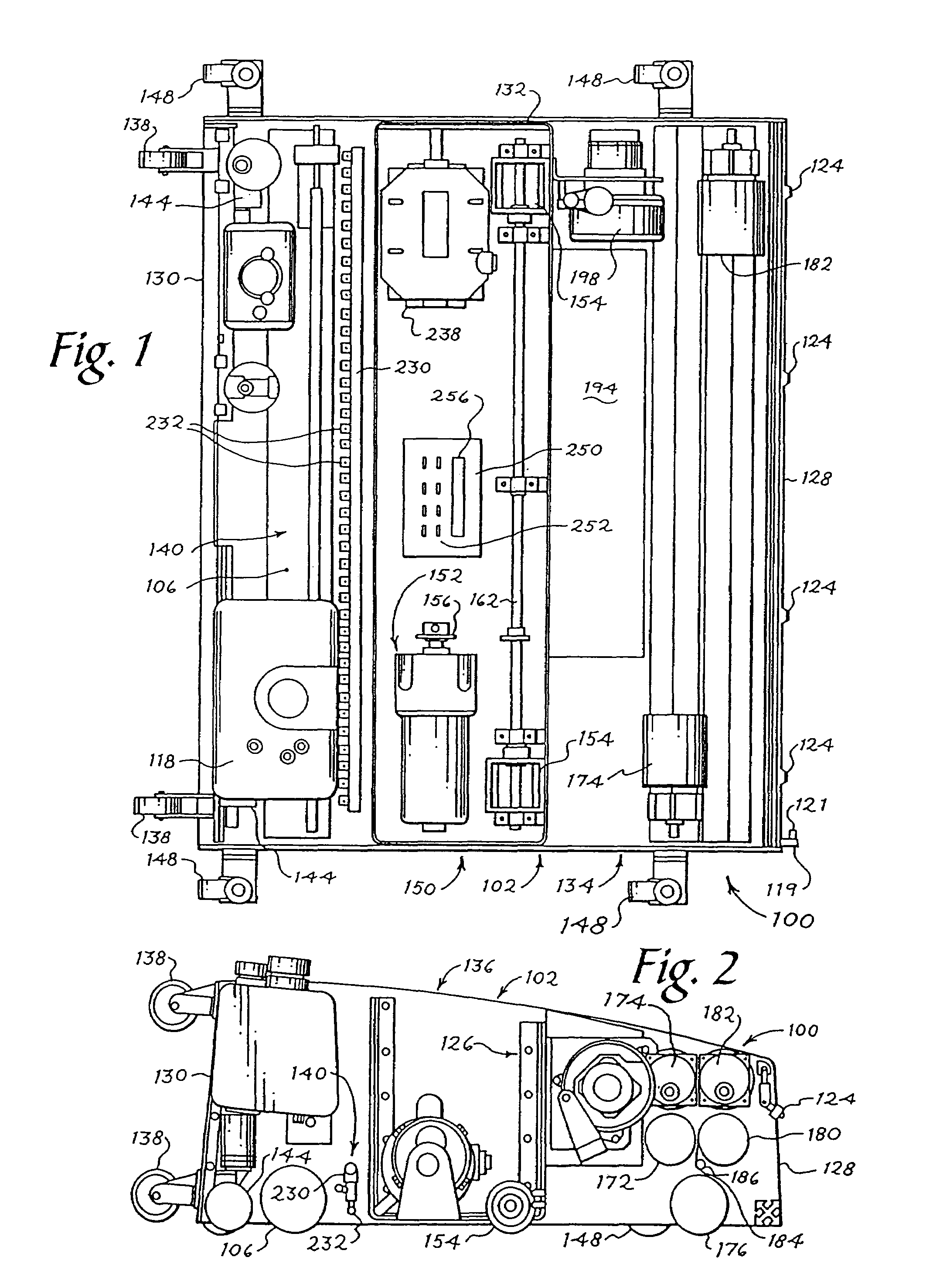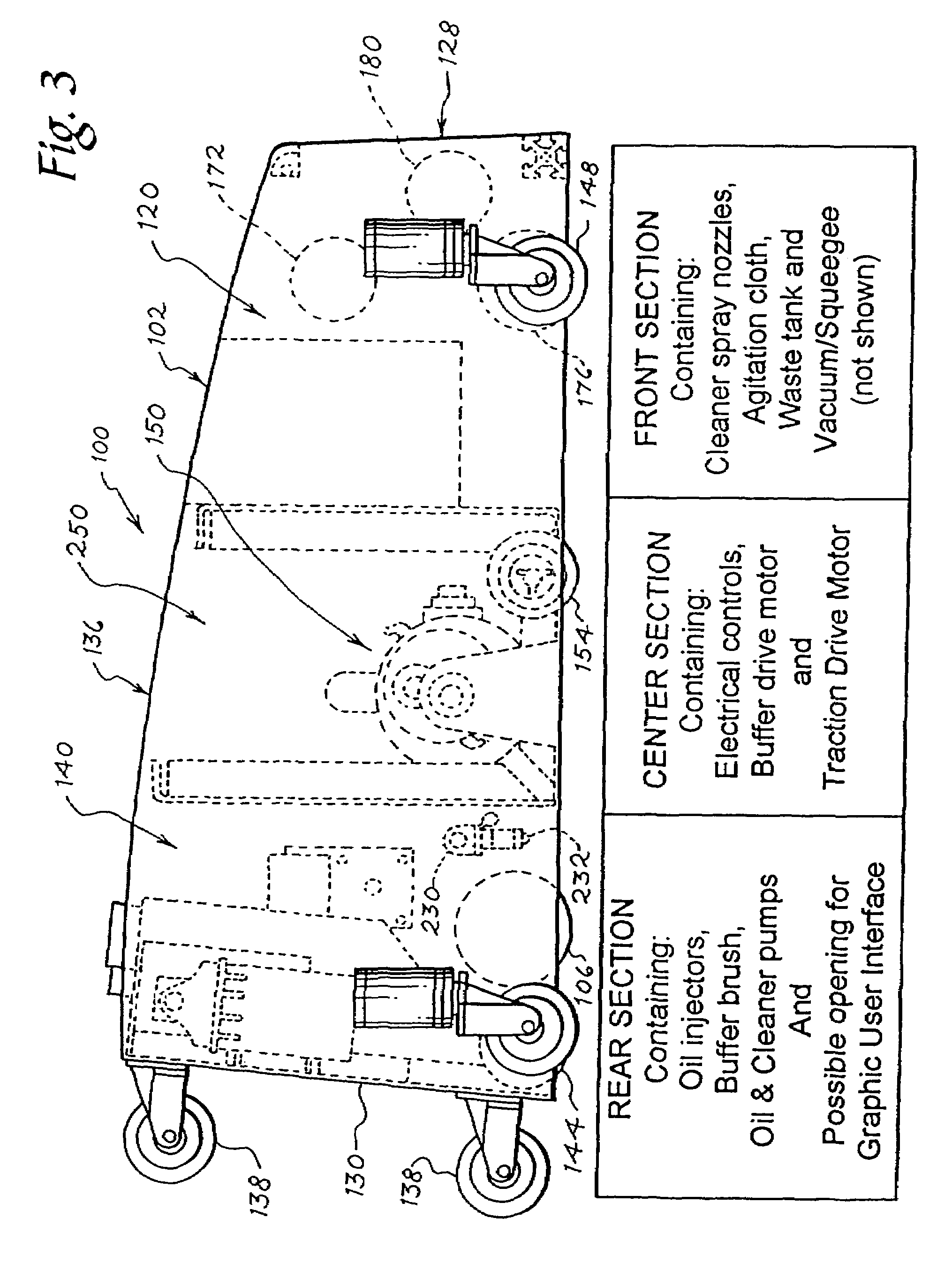Bowling lane conditioning machine
a conditioning machine and bowling lane technology, applied in the field of bowling lane conditioning, can solve the problems of difficult to precisely control the amount of dressing fluid application along the length of the bowling lane, difficult to control the precise amount of fluid transferred onto the lane, and virtually obsolete wick technology for today's lane conditioning needs
- Summary
- Abstract
- Description
- Claims
- Application Information
AI Technical Summary
Benefits of technology
Problems solved by technology
Method used
Image
Examples
first embodiment
[0114]lane conditioning system 100, which meets the aforementioned ABC and WIBC conditioning requirements, as well as conditioning requirements set forth in Europe and other countries, will now be described in detail.
[0115]Referring to FIGS. 1-45 and 64-72 generally, and specifically to FIGS. 1-7, the first embodiment of lane conditioning system 100 broadly includes housing 102 including a cleaning fluid delivery and removal system 120, hereinafter designated “cleaning system 120”, dressing fluid delivery and application system 140, hereinafter designated “dressing application system 140”, drive system 150 and control system 250. Cleaning system 120 may broadly include cleaning fluid reservoir 122, telescoping cleaning fluid delivery nozzles 124 and vacuum system 126 for removal of cleaning fluid applied onto a bowling lane BL. Dressing application system 140 may broadly include precision delivery injectors 232 for injecting high viscosity lane dressing fluid directly onto bowling l...
second embodiment
[0147]lane conditioning system, generally designated 300 will now be described in detail in reference to FIGS. 1-7, 46A and 46B.
[0148]Referring to FIGS. 1-7, 46A and 46B, for the second embodiment of lane conditioning system 300, the cleaning system 120, vacuum system 126, drive system 150, and squeegee system 192 may be generally identical to the respective systems discussed above for lane conditioning system 100. For the second embodiment of lane conditioning system 300, for dressing application system 140, instead of thirty-nine (39) injectors 232 operatively connected to a reciprocating injector rail 230, twelve (12) precision delivery injectors 302 (similar to injectors 232), for example, may be provided with each of the injectors having a predetermined spacing of approximately 3.3 inches from centers. For the embodiment of FIGS. 46A and 46B, precision delivery injectors 302 may be positioned on an injector rail 304 and shuttled or otherwise reciprocated across the bowling lane...
third embodiment
[0150]lane conditioning system, generally designated 400 will now be described in detail in reference to FIGS. 1-7, 47 and 48.
[0151]Referring to FIGS. 1-7, 47 and 48, for the third embodiment of lane conditioning system 400, the cleaning system 120, vacuum system 126, drive system 150, and squeegee system 192 may be generally identical to the respective systems discussed above for lane conditioning system 100. For the third embodiment of lane conditioning system 400, for dressing application system 140, instead of injecting dressing fluid directly onto bowling lane BL, lane conditioning system 400 may include a dressing fluid transfer system 402 including a transfer roller 404 and buffer 406. Specifically, for the third embodiment, dressing fluid may be injected onto transfer roller 404 disposed in contact with buffer 406 and thereafter spread onto bowling lane BL by buffer 406. Transfer roller 404 may be operated by a separate transfer roller motor (not shown) or may instead be ope...
PUM
 Login to View More
Login to View More Abstract
Description
Claims
Application Information
 Login to View More
Login to View More - R&D
- Intellectual Property
- Life Sciences
- Materials
- Tech Scout
- Unparalleled Data Quality
- Higher Quality Content
- 60% Fewer Hallucinations
Browse by: Latest US Patents, China's latest patents, Technical Efficacy Thesaurus, Application Domain, Technology Topic, Popular Technical Reports.
© 2025 PatSnap. All rights reserved.Legal|Privacy policy|Modern Slavery Act Transparency Statement|Sitemap|About US| Contact US: help@patsnap.com



